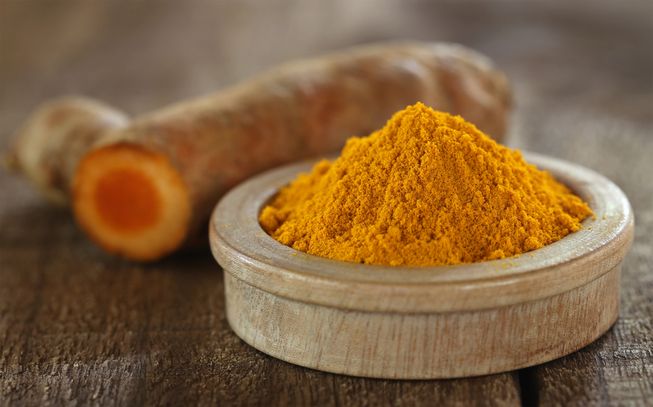Healing superfoods: 4 Natural remedies for aches and pains
11/02/2022 / By Zoey Sky

If you frequently experience minor body aches and pains, it might be better to use natural remedies instead of over-the-counter pain (OTC) medications that are often linked to many adverse effects.
Natural remedies like cloves and turmeric can be comforting and are more cost-effective. These herbs are effective in relieving aches and pain and can be good alternatives if you don’t react well to OTC pharmaceuticals.
The next time you’re suffering from body pain, try a natural remedy like cloves or willow bark. These medicinal herbs can be consumed as tea or used as a topical remedy.
Cloves
Clove oil contains eugenol, a chemical that acts as an anesthetic and antibacterial agent. Clove oil is anti-inflammatory and antifungal.
The active compound eugenol is also used in some topical OTC pain creams.
You can buy clove oil from drug stores, health food shops, supermarkets or online. Clove oil tastes strong, warm and a little spicy.
If you have a toothache, dip a clean cotton swab or cotton ball in clove oil and gently wipe it over your gums where it hurts. When using clove oil, dilute it with olive oil or another carrier oil before applying it to the affected area.
You can also use whole cloves. Place the cloves on the affected area for several minutes at a time for natural pain relief.
Heat and ice
Heat and ice are also effective treatments for pain relief. Heat and ice can help take care of moderate pain and reduce swelling.
Use cold remedies like ice wrapped in a clean towel to bring down swelling. Meanwhile, heat works best to loosen up stiff joints and aching muscles. (Related: Boost brain health and relieve nausea and stomach issues with ginger, a versatile superfood.)

Turmeric
Turmeric is a popular spice with an eye-catching yellow color. The spice is used to make curries and it is full of beneficial compound called curcumin.
Studies have found that curcumin has antioxidant and anti-inflammatory properties. However, curcumin has low bioavailability, meaning your body has a hard time accessing and absorbing the compound.
This is why experts also recommend taking turmeric supplements with high concentrations of curcumin.
You can also make turmeric tea using:
- Grated turmeric root
- Pure turmeric powder
- Store-bought turmeric tea (Loose-leaf or in a tea bag.)
The suggested daily intake of turmeric depends largely on what you want to treat. Research involving adults supports the safe use of 400 to 600 milligrams (mg) of pure turmeric powder three times daily.
Overall, research shows that curcumin doses of 4,000 to 8,000 mg per day or even as high as 12,000 mg per day are safe.
According to studies, drinking turmeric tea can help reduce arthritis symptoms because curcumin is an anti-inflammatory that may help reduce the main symptoms of arthritis.
Data from a 2017 study showed that out of 206 adults in the U.S. with self-reported rheumatoid arthritis, 63 percent used non-vitamin supplements to manage their symptoms. Turmeric was the most popular product.
Turmeric tea
You can brew turmeric tea using pure turmeric powder or grated or ground dried turmeric.
Follow the recipe below to make one cup of soothing turmeric tea:
Ingredients:
- 1 Cup of water or milk (Use either cow’s milk or plant-based milk as preferred.)
- 1 Tablespoon of honey
- 1 Teaspoon of cinnamon
- 1 Teaspoon of turmeric
- 1/2 Teaspoon of black pepper
Preparation:
- Bring the water or milk to a boil.
- Add the honey, cinnamon, turmeric and black pepper to the boiling liquid. Set the mixture aside and let it steep for 10 to 15 minutes.
- After completing steps one to three, strain the tea into a container and let it cool before drinking.
You can also add other ingredients to turmeric tea to improve the taste or help with turmeric absorption.
Common additives include:
- Anise
- Basil
- Black Pepper
- Cardamom
- Cinnamon
- Coconut oil
- Ghee (Clarified butter)
- Ginger
- Lemon or Lime
- Maple Syrup
- Nutmeg
- Vanilla
You can also mix turmeric with another brewed tea, like black or green tea.
Willow bark
Willow bark is another natural pain reliever that has been used for centuries to help relieve inflammation, a common cause of most aches and pains.
Willow bark can be brewed to make tea or you can buy it in liquid and capsule form. It helps relieve pain because it is a good source of salicin, a very similar ingredient to what is found in aspirin.
You can also try using willow bark to help relieve headaches, low back pain and minor arthritic flare-ups.
When taken in moderation, willow bark doesn’t usually have negative side effects.
Note that the salicin in willow bark converts to salicylic acid. Some say that this makes it gentler on your stomach than lab-created aspirin.
However, too much willow bark can cause stomach cramping, bleeding and kidney issues. You should also avoid willow bark if you have an allergy to aspirin since you may also have a similar reaction to the former.
Additionally, willow bark can interact with certain medications, like beta-blockers or blood thinners.
Don’t give willow bark to children and adolescents up to the age of 16 because of the risk of Reye’s syndrome, a rare condition that causes brain and liver damage.
Pregnant and breast-feeding women should also avoid taking any medication that contains salicylates, such as willow bark. Lastly, if you have gastric ulcers you should use willow bark with caution because too much could cause stomach bleeding.
Forms of willow bark
Below are different forms of willow bark that you can try for natural pain relief:
Bark
Salicin is the active ingredient in willow bark, but the accompanying flavonoids and plant particles might be part of what makes willow bark effective.
This is why some people will chew on the unprocessed bark of the willow tree. But since it can be hard to determine how much salicin you are getting from each piece of bark, this method of consumption should be approached with caution.
Capsules
You can buy powdered willow bark in capsule form from many drugstores and almost any health food store.
The recommended dose of willow bark for pain relief is 240 mg a day.
Liquid
Willow bark is also available in a distilled tincture form.
Take one to two drops per day for pain relief (up to two milliliters). This works as an anti-inflammatory and pain relief substitute for aspirin.
Tea
Some health food stores sell willow bark tea for pain relief and as an anti-inflammatory.
To make willow bark tea, steep the tea for two to three minutes in hot water. Note that it’s also difficult to confirm how much salicin you are getting in each serving of tea so drink moderately.
Topical
Willow bark can also be used topically. Since this form isn’t absorbed digestively, topical willow bark is a good alternative for people who often experience stomach ulcers.
Keep in mind that topical use of willow bark can be harsh and cause skin irritation.
If you often suffer from aches and pains, use natural remedies like cloves and willow bark.
Visit Foodismedicine.com to read more articles about other beneficial superfoods that can be used for pain relief.
Watch the video below to learn how clove essential oil can help keep your blood sugar levels stable.
This video is from the Natural News channel on Brighteon.com.
More related stories:
A toothache at night: 7 Natural home remedies for pain relief.
Frankincense: One of the most powerful medicines from Mother Nature.
7 Health benefits of elderberry, a superfood that can boost your immune system.
The toothache plant: How to grow and use this natural toothache remedy.
Sources include:
Submit a correction >>
Tagged Under:
alternative medicine, Cloves, food cures, food is medicine, functional food, heat and ice, herbal medicine, Herbs, inflammation, natural cures, natural health, natural medicine, pain relief, phytonutrients, remedies, turmeric, Willow bark
This article may contain statements that reflect the opinion of the author





















